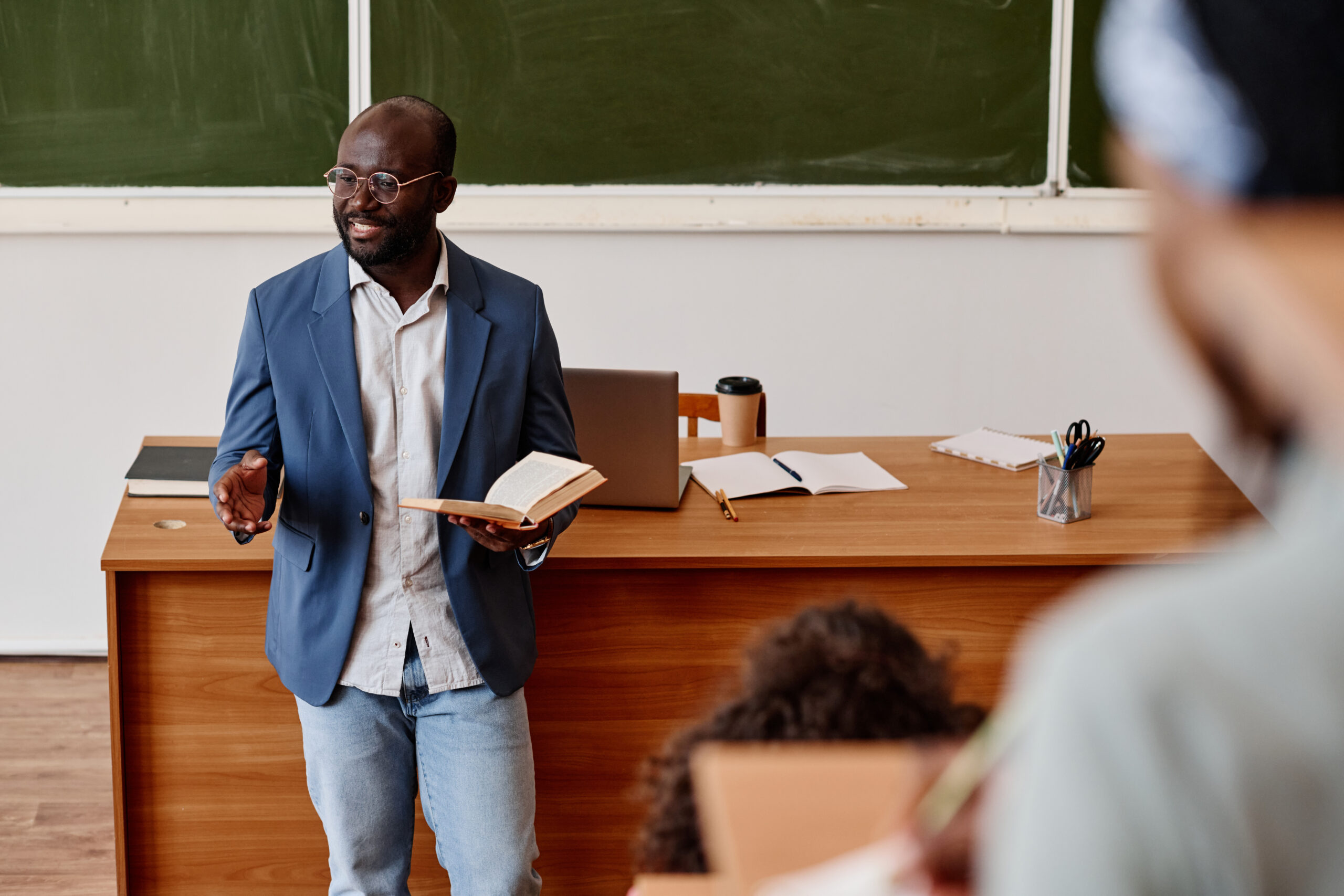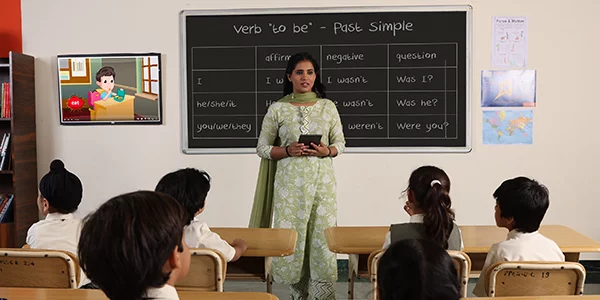Get Top Results with Primary Science Tuition Singapore from Experienced Tutors
Get Top Results with Primary Science Tuition Singapore from Experienced Tutors
Blog Article
Checking Out the Different Training Methods in Key Science Education Today
Inquiry-based understanding, hands-on experiments, and the integration of technology are redefining just how instructors engage young minds. In addition, collaborative methods and separated instruction are being employed to cater to the diverse demands of trainees, enhancing both interaction and understanding.
Inquiry-Based Knowing
Inquiry-Based Discovering (IBL) is a pedagogical approach that motivates students to explore scientific concepts through questioning, examination, and hands-on experimentation. This approach stresses the duty of trainees as active participants in their learning, promoting critical reasoning and analytic skills. By engaging with real-world inquiries, trainees come to be motivated and curious, which enhances their understanding of scientific principles.
In IBL, educators serve as facilitators, assisting pupils as they navigate their queries instead than delivering information directly. This student-centered method allows for distinction, fitting various finding out speeds and designs. Trainees develop skills in formulating hypotheses, creating experiments, and analyzing data, which are critical for clinical literacy.
Furthermore, IBL cultivates cooperation amongst trainees, encouraging them to share searchings for and ideas. This cumulative questions advertises social abilities and a sense of neighborhood within the classroom. In addition, the procedure of questions motivates strength, as trainees learn to embrace failure as a stepping stone towards understanding.
Hands-On Experiments
Hands-on experiments are a crucial part of efficient science education and learning, complementing the principles of inquiry-based understanding. These experiments enable students to engage directly with clinical concepts, cultivating a much deeper understanding via experiential understanding. By controling materials and observing results, young students can realize abstract theories in substantial methods.
Such tasks promote vital reasoning and analytical skills, as pupils hypothesize end results, conduct experiments, and assess outcomes. This process motivates them to ask inquiries, refine their understanding, and create a scientific state of mind. Hands-on experiments can be tailored to varied learning designs, making certain that all trainees have the possibility to engage meaningfully with the content.
In addition, hands-on experiments often motivate cooperation amongst peers, promoting synergy and communication skills. Operating in teams makes it possible for students to share concepts, discuss searchings for, and learn from each other, which enhances their overall educational experience.
Including hands-on experiments into the main scientific research educational program not just enhances the finding out setting yet also grows a lifelong interest in science. By actively taking part in their education, students are much more likely to create an interest for scientific inquiry that extends past the classroom.
Innovation Combination
Incorporating innovation right into primary science education has become significantly vital in promoting trainee interaction and boosting finding out end results. Making use of electronic devices, such as interactive simulations, virtual labs, and educational software application, offers students with chances to check out scientific concepts in cutting-edge methods. These resources help with a deeper understanding of intricate subjects by allowing students to envision and adjust variables that would certainly be impractical in a standard classroom setup.
Moreover, modern technology combination encourages personalized finding out experiences. Trainees can proceed at their very own pace, taking another look at difficult concepts with multimedia sources, which accommodate various learning designs. This adaptability not just supports specific development however likewise grows a sense of freedom in students.
Furthermore, technology offers as a bridge to real-world science, linking students with current research study and expert payments. Access to clinical journals and on the internet databases expands pupils' perspectives on clinical inquiry and promotes vital thinking abilities.
Collaborative Discovering
Collaborative knowing plays an essential duty in key scientific research education and learning by cultivating synergy and interaction skills among trainees. This technique urges learners to work together, share knowledge, and take part in analytical, which enhances their understanding of scientific concepts. By taking part in team activities, students learn to verbalize their concepts, listen to varied perspectives, and discuss options, every one of which are necessary abilities in both academic and real-world contexts.

Research indicates that collective learning can bring about boosted inspiration and involvement in science topics, as students locate enjoyment in common experiences (primary science tuition Singapore). In addition, this technique prepares students for future collaborative ventures, outfitting them with the skills needed for effective team effort in college and expert settings. Ultimately, embracing collaborative learning in main scientific research education and learning can considerably improve the learning experience and advertise a much deeper understanding of clinical inquiry
Differentiated Instruction

Set apart instruction can manifest in various you could try this out methods, such as differing the web content, procedures, or items of understanding. As an example, teachers might make use of tiered projects that offer differing levels of intricacy, allowing pupils to operate at their corresponding preparedness levels. Furthermore, flexible organizing techniques can facilitate collaboration amongst pupils with various capabilities, promoting peer discovering.
Analysis plays a vital role in this method, as it educates instruction and assists teachers understand each trainee's special requirements. Formative assessments, such as observations and tests, can guide teachers in readjusting their methods to improve discovering results. primary science linked here tuition Singapore. Eventually, by carrying out differentiated instruction in main science education, teachers can grow a more effective and equitable knowing setting, empowering all pupils to reach their full capacity in understanding clinical phenomena
Verdict
In summary, the diverse training techniques in main science education, consisting of inquiry-based knowing, hands-on experiments, technology assimilation, collective discovering, and distinguished instruction, jointly add to a more reliable understanding atmosphere. These techniques advertise critical thinking, analytic abilities, and a much deeper understanding of clinical ideas. By implementing these approaches, educators can develop supportive and interesting classrooms that resolve the varied needs of pupils, inevitably cultivating a long-lasting interest in science and enhancing scholastic accomplishment.
Inquiry-Based Discovering (IBL) is an instructional technique that encourages students to check out scientific concepts through wondering about, examination, look at this web-site and hands-on experimentation.Collaborative learning plays a crucial role in key scientific research education by cultivating teamwork and interaction abilities among students.Research study suggests that joint discovering can lead to raised motivation and interaction in science topics, as students locate enjoyment in shared experiences.In promoting a comprehensive understanding setting, separated guideline emerges as a crucial strategy to accommodate the diverse demands and abilities of pupils in key scientific research education. Ultimately, by implementing distinguished instruction in key scientific research education, instructors can grow a more equitable and reliable knowing environment, encouraging all students to reach their complete capacity in recognizing scientific phenomena.
Report this page